Tom Clancy's Splinter Cell
Review - Kristan tucks into Ubi Soft's long-awaited stealth 'em up
After all the hype, the plaudits and the TV ads Splinter Cell hardly needs much of an introduction. But is it another compelling reason to own an Xbox, or a pretty but overrated attempt to depose the mulleted Solid Snake from the stealth action throne?
It's hard not to be seduced by the game's visual splendour, which set new standards in almost every area. From the first moment you set eyes on Splinter Cell, it impresses with its intricate level of detail, which is given even more credibility by the most exquisite use of light and shadow we've witnessed in a videogame. The animation and range of manoeuvres is handled very deftly too, and the camera rarely acts like the drunken cad that so many third person games trip themselves up with. Add to that some marvellous, delicate touches, such as the way curtains and blinds react to your movement, as well as the night/thermal vision aids, and it add a gloss to an already slick package.
The cut scenes are also well realised, in a mock CNN kind of way, although they're not quite in the same league as the Hideo Kojima epics for visual polish.
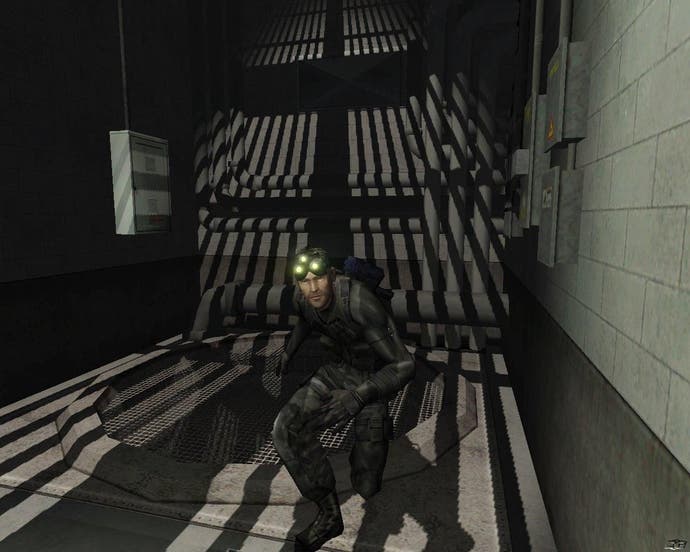
Widescreen woes
If it wasn't for the absence of a native 16:9 widescreen mode, this would be the best looking game on the Xbox (and therefore a console), but sadly, forcing the game into widescreen makes everything look very odd indeed, making characters look fat and accentuating jaggies. 4:3 TV owners won't be concerned in the slightest, but for the growing number of Widescreen TV owners, the lack of a 16:9 mode is extremely irritating.
Great, so it looks absolutely stunning. There won't be many of you willing to argue this point, but most of you will be hoping that Ubi has bothered to conjure a game to match the eye candy, and the answer is perhaps more complicated and contradictory than you would necessarily hope.
Being a game entirely reliant on stealth, the key to enjoying Splinter Cell is to have a patient nature, be persistent, and above all pay attention. If you're the kind of gamer that likes to rip through levels gung ho, killing everything in sight, then you will probably find Splinter Cell unforgiving and eventually irritating, because you'll die a thousand deaths trying to get through even the training missions. We're of the pretty patient persuasion, and even we found it hard not to throw the Xbox pad out of the window on several occasions. Per level.
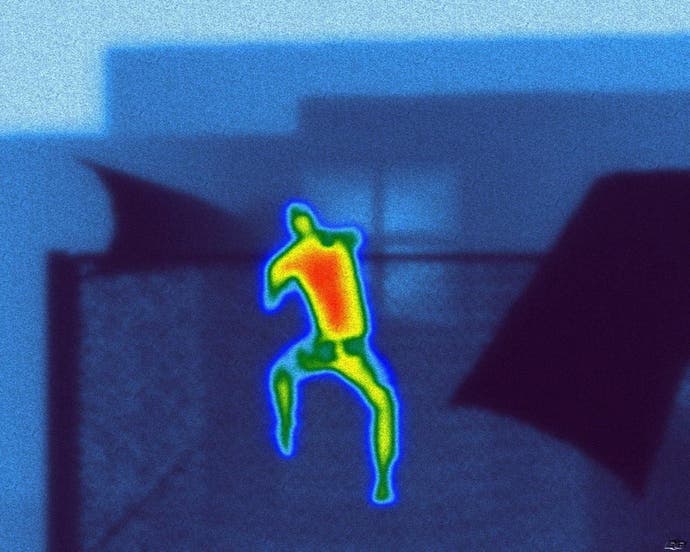
It's hard, but we like it
But you'll also love Splinter Cell for being a challenge in an age when videogames have all the interaction of a fairground ride. For the most part you're expected to guide Sam Fisher past patrolling guards while avoiding detection, which is harder than you might expect - especially with an extremely limited amount of ammo, or in some cases no ammo at all.
Also, the bad guys aren't just patrolling drones for you to pick off. They react to light and sound in a fashion we've never seen in a videogame, so if you want to get by undetected, then sticking to dark areas, eliminating light sources, and generally being quieter than a mouse is the way to go. Occasionally, though, you might actually want to make a noise in order to coax a guard away from an area that you need to access, and through clever use of cans and bottles you can craftily lob them wherever you want them to inspect, and quietly tip toe your way past them while they're off investigating the source.
Charge off like clod hopping elephant, though, and you'll soon be rumbled by your increasingly suspicious and usually heavily armed foes. A noise meter lets you know exactly how much racket you're making, but in most cases it's just best to only run when you absolutely have to. Even the material you're walking on has an impact on the noise you make when you walk, so sometimes you're best to stick to softer ground to slip by undetected.
Naturally, there are wall mounted cameras abound, but you can either shoot them out or dance past them while they're pointing the other way. On the occasions when incapacitating your enemy is the only option available to you, there are various strategies to be employed even here. Creeping up behind them quietly gives you the chance to grab them in a headlock, drag them off and club them over the head when you're good and ready. Failing that, a headshot normally takes your victim down in one, while if all else fails a quick couple of blows to the head will suffice if you're all out of ammo.
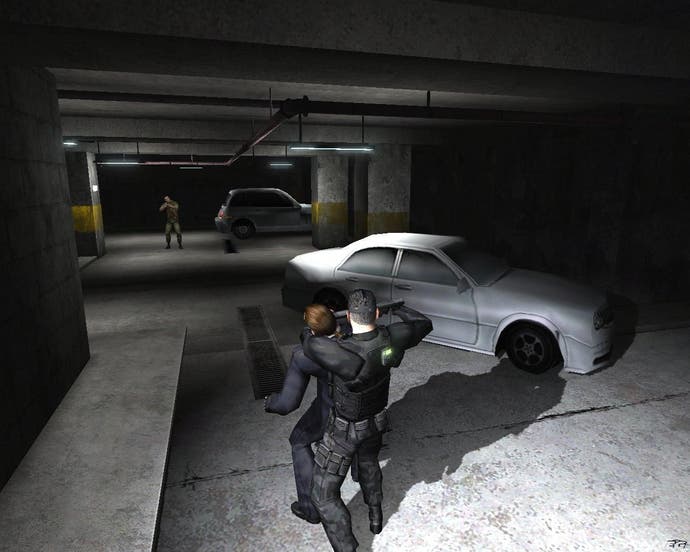
We would've got away with it too, if it wasn't for those meddling kids
Whatever you choose to do, hiding the evidence of your misdemeanours is often essential, but Splinter Cell offers plenty of dark corners and cupboards for you to dispose bodies into, ensuring those pesky, meddling patrolling guards won't raise the alarm. Your carelessness almost always gets you into trouble, so it definitely pays to be thorough.
When you finally get past a section that's been bothering you, you'll feel like dancing a celebratory jig it's so sodding rewarding. With the absence of a "save anywhere" facility, you can opt to save your progress via a series of checkpoints dotted around liberally around each level. Sometimes, however, these checkpoints aren't as evenly spaced as they could be, with two appearing one after the other, and then forcing you to negotiate huge tricky sections in one piece.
Unless you're following a guide, then Splinter Cell certainly won't be one of those games you can polish off in a weekend. Sometimes the fun is in working out the solution to the problem - although even when you do know what you're supposed to do, carrying it out is notoriously tricky. So many things can go wrong, and inevitably they do. Our advice to anyone who gets stuck on the game is: don't look up the answer in a walkthrough - stick with it. Sometimes it's as simple as performing a manoeuvre you've long since forgotten you could perform, or just being incredibly patient. It's not that Splinter Cell is hard, as such, but sometimes it's hard to know the right route to success. Once you've mastered certain sections, you'll ask yourself why you found it so tough in the first place - and repeated plays will no doubt allow ninja gamers to show off and tell everyone how they completed it in three hours or some nonsense. But trust us when we say that this is a game you'll really need to persist with to crack.
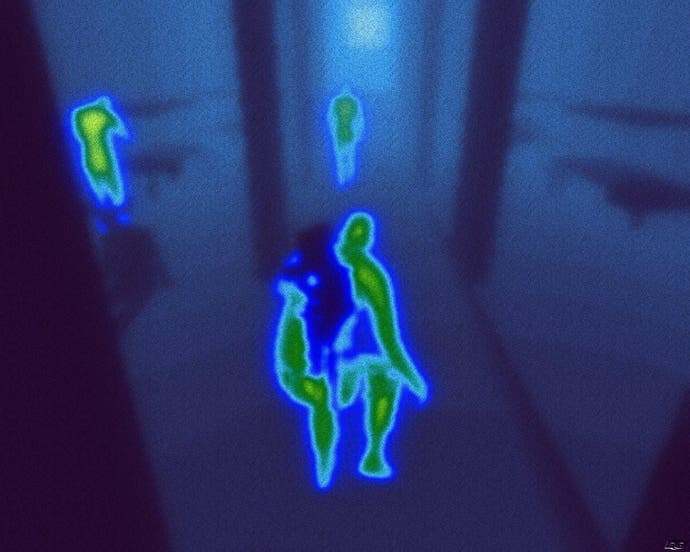
I'm a creep
The control system, fortunately, rarely lets you down. It's a well used system that has a lot in common with console first person shooters, with movement controlled with the left stick and camera/turning with the right. With all the weapon and the numerous movement controls mapped intuitively, you're very soon comfortable with the system. Considering how many controls there are, it feels incredibly easy to use, while the analogue controls are as sensitive as they should be - allowing you to make minor adjustments while you're creeping along.
The range of moves is certainly worthy of applause; Sam Fisher does all the usual stealthy moves such as peering around corners, climbing, dangling from ledges, crouching, etc, but new moves such as being able to do a split jump between walls and climb along pipes mounted horizontally allow for some cunning level designs, as well as looking smug in their own right. The gadget count is impressive too, with the optical cable allowing you to peer through keyholes, a cunning 'force feedback' lock pick system. Meanwhile, the slow appearance of the weaponry can be irritating, but when new firepower does finally show up halfway through the game, it doesn't disappoint.
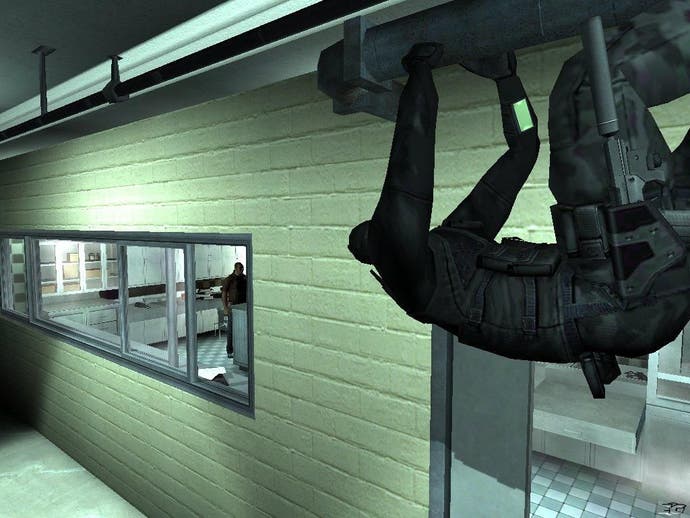
Eh? Aye
Naturally there are some flaws. As good as the AI is, there are times when gaping holes appear in it. For example, relatively early on you're expected to point a microphone at an ascending lift, and once it gets to the top three guards burst out of a room to attack you. However, if you choose to just head for that room first, the three guards just stand there looking gormless and don't attack you. Elsewhere, you often see guards getting stuck in repeating animations that can result in you having to restart your progress, while the process of grabbing guards in a headlock seems sometimes overly unforgiving - forcing repeated restarts when it shouldn't really be necessary.
Fisher's certainly a less irritating lead character than the rambling supposedly enigmatic lunacy of Konami's bandana wearing hero. For those of you who found the endless codec and FMV sequences of MGS2 a deathly bore, Splinter Cell does a much better job of keeping you involved in the game, rather than trying to wow you with convoluted cinematics. Although the story is hardly Oscar winning, it makes a whole lot more sense if you can be bothered to pay attention to the FMV and the numerous notes that you find scattered around. It is quite amusing how hard Ubi has tried to make Sam Fisher look like George Clooney, though. He should sue!
But will you want to part with your cash? If you're even remotely a fan of the Metal Gear series, or fancy a cutting edge stealth based game then the answer is, of course, yes. If you find trial and error based games hugely annoying, and haven't got hours to spare learning the intricacies of each of the nine levels, then you'd be better off trying before you buy. At the very least try it - you might just like it, (and frankly it'd be rude not to), if only to admire the delicious visuals on display. We reckon it stands tall as one of the games of the year, and along with Halo one of the main reasons to own an Xbox - although a PC version is due out at the end of January.



